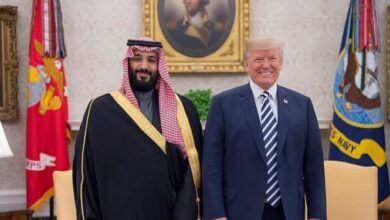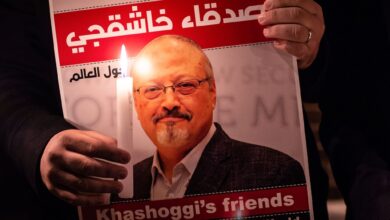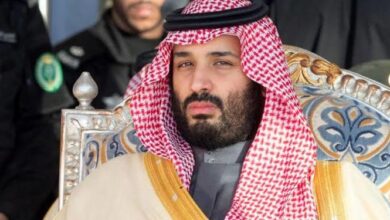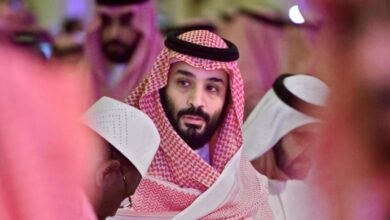Corruption bill in Saudi Arabia exceeded $180 billion
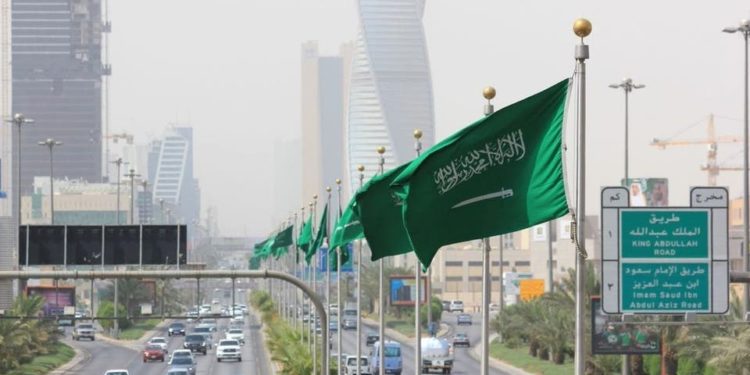
Corruption and plundering of funds is rampant in the Kingdom of Saudi Arabia, in light of the involvement of senior princes and officials in the Saudi regime and repeated scandals.
Recent data revealed that the corruption bill that is gnawing in the Gulf is huge, reaching $320 billion in the past five years, according to a report by the London-based Capital Economics.
Saudi Arabia tops the Gulf states in terms of the number of corruption cases and the amount of looted funds are around $180 billion worth, as corruption has exacerbated many of the economic activities in the Kingdom.
Western media had recently revealed that Saudi investigators were prosecuting, Saad al-Jabry, suspected of corruption who had worked for the Saudi Ministry of Interior and had become a fugitive.
The Wall Street Journal confirmed that Al-Jabry is accused, along with members of his family and others close to him, of spending nearly $11 billion in government funds, transferring funds from external accounts, and also charging the Kingdom more fees in deals with Western companies.
The director of the research unit at the Arab Center for Consultancy & Economic Studies, Abdulaziz Al-Shehri, said that corruption in Saudi Arabia in the past five years is more than the corruption in all Gulf countries combined.
Al-Shehri added that the volume of corruption has increased in the Kingdom during the past period due to the absence of popular oversight as well as engaging in external conflicts and support for the warring parties in the wars in the region and the concentration of powers in the hands of one person.
In turn, the professor of economics at King Abdulaziz University, Fayez Al-Ibrahim asserted that government projects open the doors of corruption wide open to the corrupt.
Crown Prince Muhammad bin Salman had allegedly launched an extensive campaign against corruption in the Saudi Arabia, where a number of prominent businessmen and members of the ruling family had been arrested, while the Kingdom announced its success in recovering about $106 billion of “looted” assets and wealth. However, international organizations confirmed that the operation took place in the absence of any kind of transparency, and that no investigations or fair trials have been announced for the suspects.
This comes as the official Saudi confessions continue with the poor economic conditions inside the Kingdom and the difficulty of getting out of the crisis unprecedented since the establishment of the Kingdom.
Finance Minister Mohamed Al-Jadaan said that the July data heralded an economic recovery, but there is still a lot of uncertainty, adding that the pace of the Kingdom’s contraction will likely be less than the 6.8% expected by the International Monetary Fund, and that the Kingdom will consider selling assets in sectors that it was not studying their privatization before.
Al-Jadaan said that the Kingdom issued much more local debt than was planned for this year, and that the announced budget spending in December is likely to remain unchanged, but with the reallocation of some sectors, according to Bloomberg.
He added that the income tax will require a lot of time to prepare, and no plan is ready to be implemented.
Al-Jadaan said that privatizations will likely bring in more than $50 billion in the next four or five years.
He revealed that the Kingdom is likely to go to global debt investors again this year, but a decision has not yet been made on the planned offering.
As for foreign investments, Al-Jadaan said that the Public Investment Fund does not have a geographical preference and it depends on the investment opportunity, stressing that the fund has abundant liquidity.
Al-Jadaan pointed out that the needs of the Saudi economy are being assessed, and the required support will be provided to ensure recovery.

